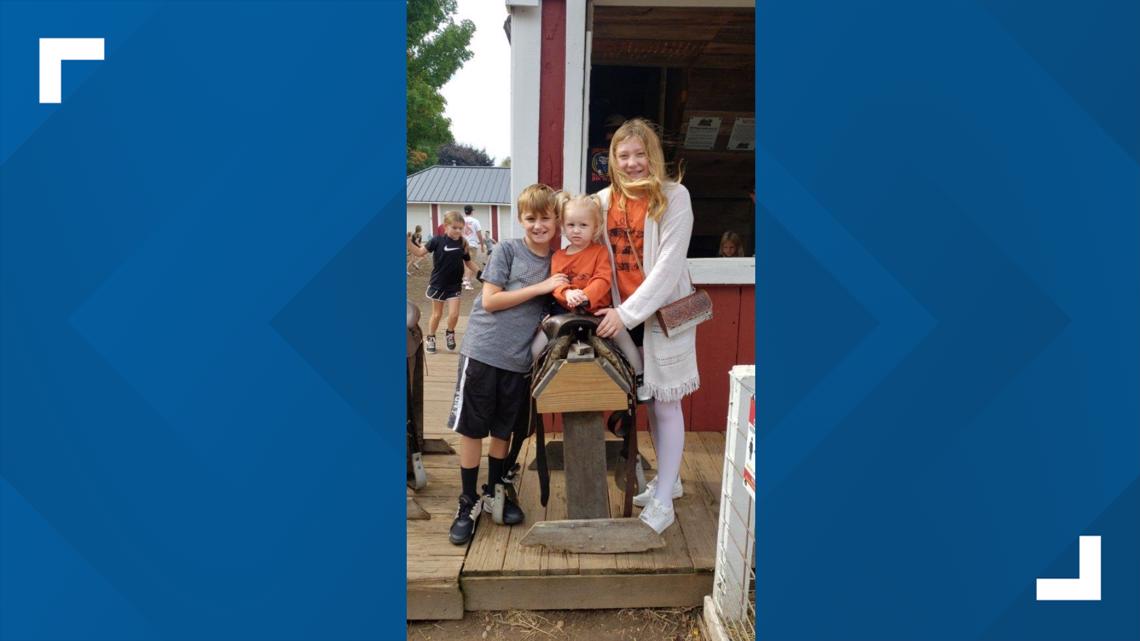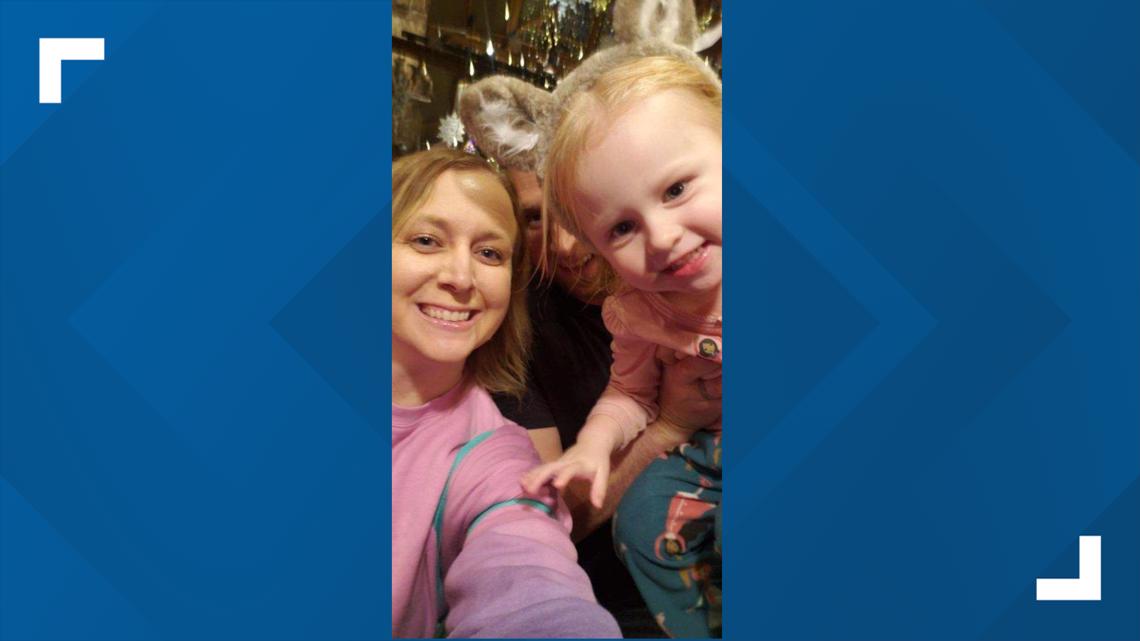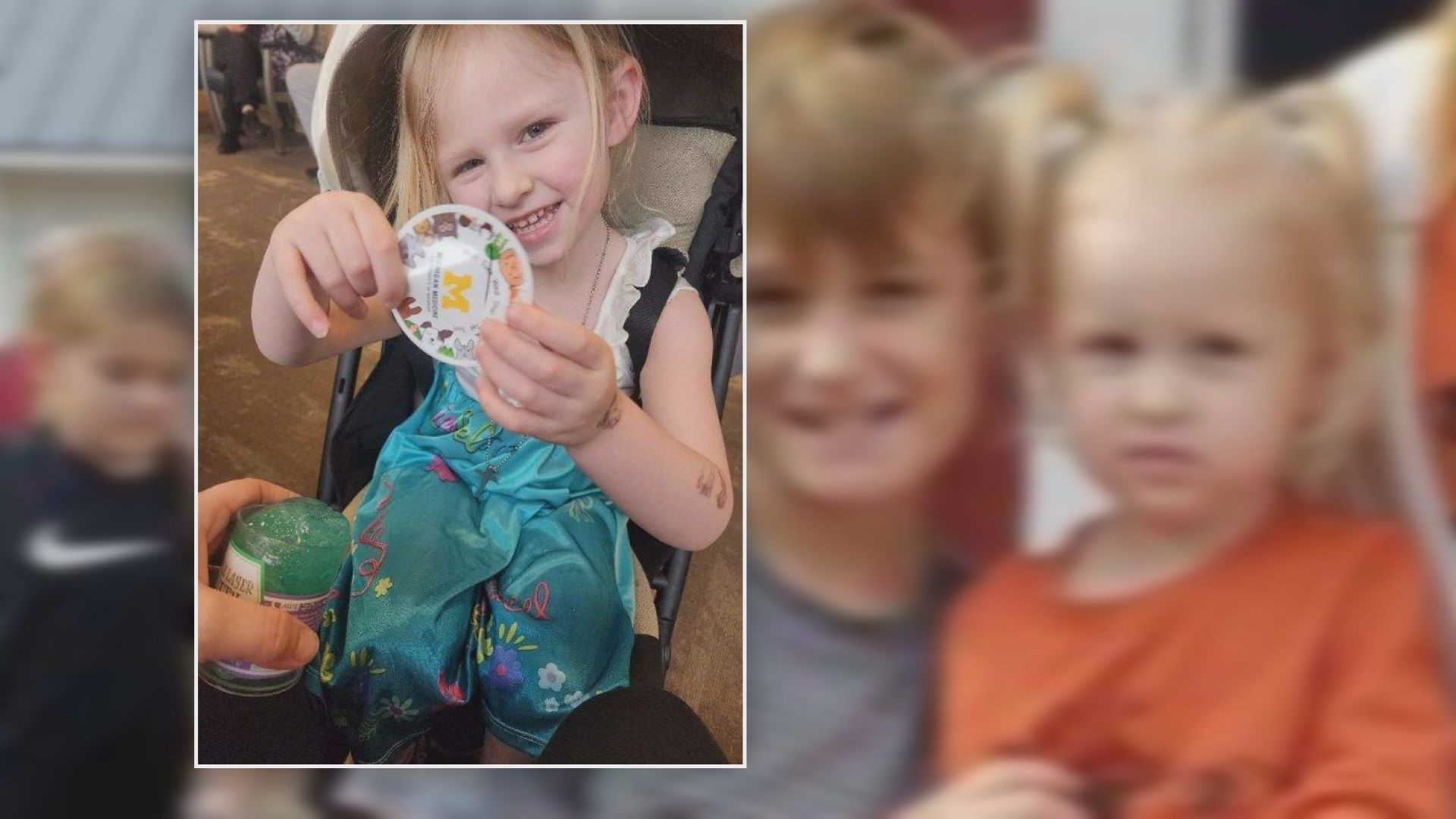RAVENNA, Mich. — The Patterson's lives changed when 4-year-old Payton Patterson was diagnosed with an ultra-rare brain disorder called CLN2.
"Her brain does not have protein enzymes, so there's no way to break down cellular waste," said her mom Amanda Patterson, "And with that, the cellular waste goes in other parts of her body and basically that brain cells die. So, she's going to lose walking, talking, her vision."
Last May, Payton was having seizures and diagnosed with Epilepsy. However, after continuing to have seizures while on Epilepsy medication, Amanda knew something was not right. Two weeks ago, the family learned of the CLN2 diagnosis.
"It took one test," said Amanda, "Who knows how much time we would have lost without this. So, I'm a big advocate of if it doesn't feel right, keep searching, keep asking."


She said the disorder came from a mutated gene both Payton's mother and father had to have without knowing.
According to the National Library of Medicine, CLN2 leads to recurrent seizures and difficulty coordinating movements. It also causes developmental regressions, including speech, walking and sitting. Often children with the condition do not survive past their teens. However, when symptoms do not develop until later, the case is milder, and they have a shortened life expectancy but tend to survive into adulthood.
"She has good days and bad days," said her father Keith Patterson, "Sometimes she walks around like nothing happened, and other days her feet drag and she falls just out of nowhere and doesn't get it. She tries to hide it, tries to make it look like she did it on purpose."
There is no cure for Payton's disorder. However, there is a treatment.
"She's the first person at Mott to receive this treatment," said Amanda, "She's the third person in Michigan to get this treatment. But unfortunately, the other two before her were too far advanced in the disease to see what we're really praying to see."


The treatment will include medicine directly into her brain, Amanda said, giving her protein enzymes her body is missing.
They will need to travel to Ann Arbor to C.S. Mott Children's Hospital from their Ravenna home every two weeks for the treatment for the rest of Payton's life.
"It's the beginning of a long road," said Amanda.
Amanda wants other parents to trust their gut and take action if they believe something is not right with their children's health.
"Just love your babies," said Amanda, "Trust your gut and fight for your babies."
Family and friends have planned a benefit to help the Pattersons for June.
They also set up a GoFundMe to help the family with medical and travel expenses for Payton's treatments.
RELATED VIDEO: West MI man shares story of losing his leg, inspires other amputees
►Make it easy to keep up to date with more stories like this. Download the 13 ON YOUR SIDE app now.
Have a news tip? Email news@13onyourside.com, visit our Facebook page or Twitter. Subscribe to our YouTube channel.

